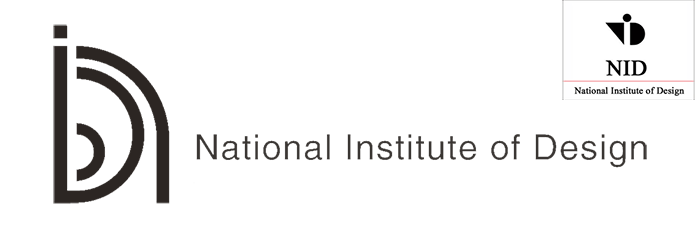
The National Institute of Design (NID) is an institution of national importance, fully funded by the Government of India. It is a premier design school in India that offers undergraduate and postgraduate programmes in design. The institute is located in Ahmedabad, Gujarat, and was established in 1961. It is recognised as one of the foremost educational and research institutions in the field of design. NID has developed a unique educational system with a focus on problem–solving and creative thinking. The institute has also been active in design research and consultancy, and has established several research and development centres in India and abroad.
National Institute of Design (NID) Entrance Exam
The National Institute of Design (NID) conducts an entrance exam for admission to its various design courses. The exam is conducted in two stages: the Design Aptitude Test (DAT) and the Studio Test/Interview.
The DAT is a written test that tests a candidate‘s aptitude and creativity. It comprises questions related to logical reasoning, general knowledge, perception, creativity, observation, and design awareness. The test is conducted in two parts: Part A and Part B.
The Studio Test/Interview is a practical test that evaluates a candidate‘s design aptitude. It tests a candidate‘s ability to use various design tools, his/her creative skills, problem–solving abilities, and communication skills. It also assesses the candidate‘s knowledge about design, technology, and design processes.
The DAT and Studio Test/Interview are held in different cities in India. The exam is conducted in both online and offline modes. The exam pattern and syllabus vary from course to course. Candidates are advised to go through the official website of NID to get the latest exam pattern and syllabus.
National Institute of Design (NID) Eligibility Criteria
The eligibility criteria for admission to the National Institute of Design (NID) are as follows:
1. Candidates must have completed their 10+2 or equivalent examination from a recognized board.
2. Candidates must have obtained at least 50% marks in their qualifying examination.
3. Candidates must have good knowledge of the English language.
4. Candidates should have a valid score in the NID Entrance Examination.
5. Candidates must submit their portfolios in the form of sketches, paintings, photographs, creative writing, etc.
6. Candidates must have the required physical and mental health to pursue the course.
7. Candidates must be at least 18 years of age at the time of admission.
National Institute of Design (NID) Colleges In India
1. National Institute of Design, Ahmedabad
2. National Institute of Design, Gandhinagar
3. National Institute of Design, Kurukshetra
4. National Institute of Design, Vijayawada
5. National Institute of Design, Jorhat
6. National Institute of Design, Bhopal
7. National Institute of Design, Bhubaneswar
8. National Institute of Design, Jodhpur
9. National Institute of Design, Kannur
10. National Institute of Design, Patna
National Institute of Design (NID) List of Stream
The National Institute of Design (NID) offers various streams for students to take up.
1. Bachelor of Design (B. Des)
2. Master of Design (M. Des)
3. Diploma in Design (Diploma)
4. Post Diploma in Design (PDD)
5. Advanced Diploma in Design (ADD)
6. Fellowship in Design (F. Des)
7. Ph.D. in Design (Ph.D.)
8. PGDPD (Post Graduate Diploma Program in Design)
9. Ph.D. in Design Research
10. M.F.A. (Master of Fine Arts)
11. Digital Design & Animation
12. Design for Retail Experience
13. Design for User Experience
14. Design for Mobility & Transportation
15. Design for Health Care
16. Design for Service Design
17. Design for Social Innovation
18. Design for Fabric & Apparel
19. Design for Toy & Game Design
20. Design for Strategic Design Management
National Institute of Design (NID) Syllabus
The NID entrance exam syllabus is divided into two parts: Creative Ability Test (CAT) and General Ability Test (GAT).
Creative Ability Test (CAT):
• Visual Perception Test
• Drawing Test
• Observation Test
• Creative Thinking Test
General Ability Test (GAT):
• Mathematical Ability Test
• Language Ability Test
• Analytical Ability Test
• General Knowledge Test



